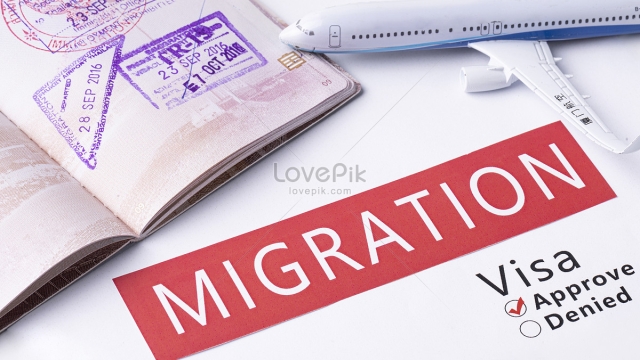
Unlocking the Keys: A Journey Through Israeli Citizenship
- by Jose Bryant

Israeli citizenship represents not only a legal status but also a profound identity tied to a rich historical narrative. As a vibrant democracy located at the crossroads of cultures and religions, Israel offers its citizens unique rights and responsibilities. Gaining Israeli citizenship can be a complex journey shaped by various factors including immigration laws, personal backgrounds, and the desire for belonging in a nation that holds significant meaning for many around the world.
For those considering this path, understanding the processes and implications of Israeli citizenship is essential. This journey often involves navigating the nuances of the Law of Return, which grants Jews the right to come to Israel and gain citizenship. However, the journey is not limited to those of Jewish descent; it also encompasses the experiences and stories of non-Jewish individuals and families who seek to make Israel their home. As we explore the multiple facets of Israeli citizenship, we will uncover the challenges and triumphs that accompany this significant commitment to a nation and its people.
Misrad Hapnim
Understanding Israeli Citizenship
Israeli citizenship is a legal status that grants individuals specific rights and responsibilities within the state of Israel. Established in 1952 by the Israeli Citizenship Law, this citizenship provides access to social services, the ability to vote and run for office, and the protection of Israeli law. Ensuring that individuals can participate fully in the civic and political life of the country is a core principle of this law, reflecting Israel’s democratic values.
There are several pathways to obtaining Israeli citizenship, including birthright, naturalization, and the Law of Return. Birthright citizenship is automatically granted to anyone born to an Israeli citizen, whereas naturalization is available to foreigners who meet specific criteria, such as residing in Israel for a set period and demonstrating knowledge of the Hebrew language. The Law of Return allows Jews from around the world to immigrate to Israel and gain citizenship, recognizing the historical and cultural connection of Jews to the land.
Understanding the implications of Israeli citizenship is crucial for those who seek to be part of this diverse society. Citizens enjoy various rights, such as freedom of speech and the right to education, but they also carry responsibilities, including military service for certain demographics. The complexities surrounding citizenship reflect the unique demographic and historical context of Israel, making it essential for individuals to navigate these aspects thoughtfully.
The Path to Citizenship
Obtaining Israeli citizenship is a journey that many aspire to undertake, driven by a desire to connect with the land and the Jewish heritage. Israel offers various pathways to citizenship that cater to diverse groups of people, including Jews from around the world, individuals with Israeli family connections, and those seeking citizen status through naturalization. The Law of Return is a significant element, allowing any Jew to immigrate to Israel and gain citizenship, reinforcing the country’s commitment to its Jewish roots.
For those who do not qualify under the Law of Return, the process becomes more intricate. Applicants who have resided in Israel for a significant period may seek citizenship through naturalization. This typically requires proof of residency, knowledge of Hebrew, and an understanding of the country’s history and culture. It is essential for prospective citizens to familiarize themselves with these requirements to ensure a smoother transition into Israeli society.
The journey to citizenship is not just about legal status; it represents an embracing of a new identity and community. With citizenship comes the right to vote and participate in the democratic process, empowering individuals to influence the direction of the nation. As individuals navigate through the legal frameworks and cultural landscapes, they embark on a transformative experience, ultimately enriching the fabric of Israeli society.
Rights and Responsibilities
Israeli citizenship offers a wealth of rights that align with the values of democracy and equality. Citizens are entitled to participate in the democratic process, which includes the right to vote in elections and the ability to run for public office. Additionally, citizens have access to social services such as healthcare, education, and welfare programs. These rights enable individuals to engage fully in society and contribute to the nation’s development.
However, with these rights come responsibilities that citizens must uphold. It is expected that citizens respect the law and adhere to regulations set forth by the government. Citizens are also encouraged to participate in civic duties, including serving in the military or performing national service, which is seen as a way to contribute to the security and stability of the country. Engaging in community activities and being involved in local governance are other important responsibilities that foster a sense of belonging and active citizenship.
Moreover, Israeli citizens share the responsibility of promoting tolerance and coexistence among diverse communities. Given the multicultural fabric of Israeli society, it is crucial for citizens to work towards understanding and respect among different groups. By embracing these responsibilities, citizens not only enhance their own rights but also contribute to a more harmonious society, ensuring that the principles of justice and equality are upheld for all.
Challenges and Opportunities
Navigating the journey to Israeli citizenship presents both challenges and opportunities that significantly shape the experiences of those seeking to settle in Israel. One major challenge is the complex legal framework governing the citizenship process, which can be difficult to understand for applicants. The bureaucratic hurdles, such as extensive paperwork and strict eligibility criteria, often lead to delays and frustration for many hopeful individuals.
On the other hand, obtaining Israeli citizenship comes with a wealth of opportunities that can transform lives. Citizens enjoy access to a robust education system, comprehensive healthcare, and a thriving job market. This environment encourages innovation and entrepreneurship, allowing new citizens to build meaningful careers and contribute positively to the country’s economy. The chance to participate in various cultural and social aspects of Israeli life also enriches the experience of citizenship.
Additionally, the sense of community and belonging that comes with being an Israeli citizen should not be overlooked. Many new citizens find support through networks of fellow immigrants and local communities, helping to ease the transition and foster a sense of identity. While the journey may be fraught with challenges, the rewards of becoming an integral part of Israeli society create a powerful and motivating drive for those pursuing citizenship.
Israeli citizenship represents not only a legal status but also a profound identity tied to a rich historical narrative. As a vibrant democracy located at the crossroads of cultures and religions, Israel offers its citizens unique rights and responsibilities. Gaining Israeli citizenship can be a complex journey shaped by various factors including immigration laws, personal…